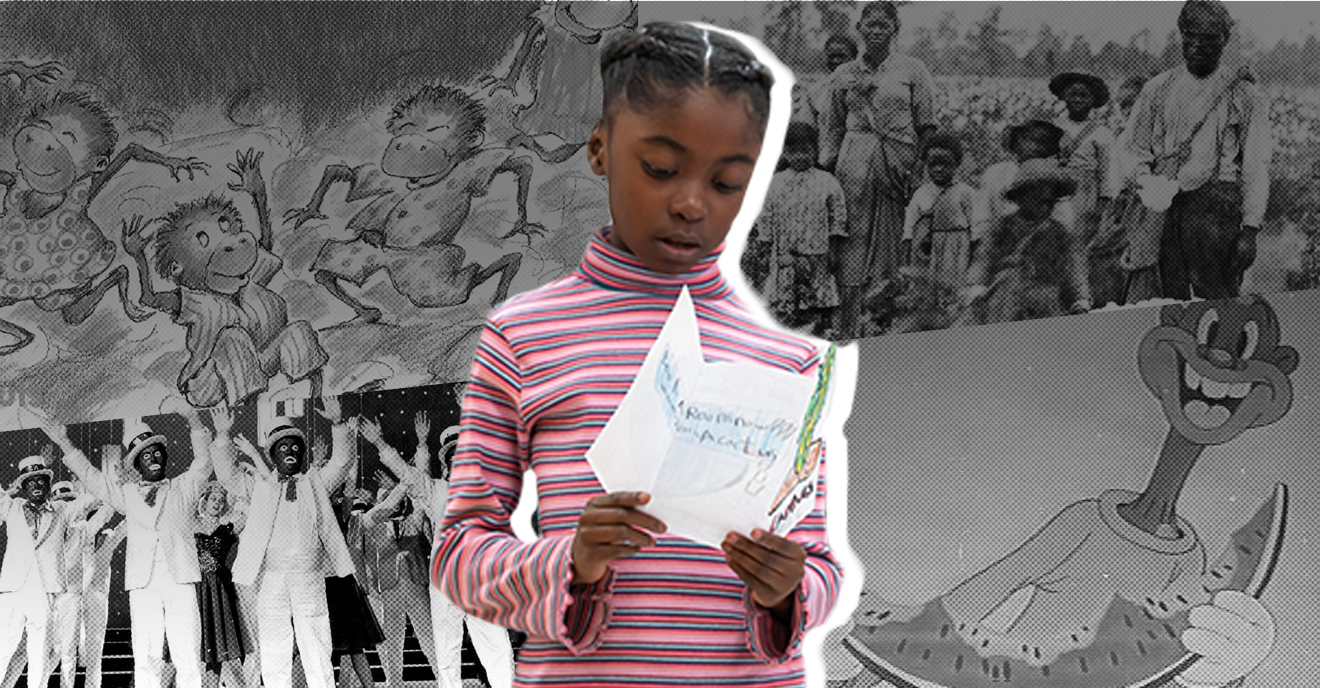Families and educators have used nursery rhymes to soothe, teach and entertain children for centuries. According to The New Shell Book of Firsts, though it’s unclear if they were actually called nursery rhymes at the time, the first reported collection of nursery rhymes were recorded as early as 1744 in Tom Thumb’s Songbook. The melodic poems have been seen as viable assets in the development of young minds, by introducing language skills and rhyme schemes that allow children to practice conversational and social skills.
Every adult remembers at least a portion of a nursery rhyme that offered lifelong lessons and competencies. Some nursery rhymes, like “The Itsy Bitsy Spider” and “I’m a Little Teapot,” even incorporate hand signs and movements to help children develop or enhance their motor skills, all while having fun. However, as helpful as nursery rhymes maybe, some have origins that are not as pure, particularly in relation to Black people. In fact, research has revealed that a number of our favorite nursery rhymes had lyrics that actually referenced slavery and were performed in minstrel shows.
Though the lyrics have been adjusted over time, the original songs were not intended for us to enjoy, but to make us the butt of every joke and a source of white entertainment. To shed light, here are five racist nursery rhymes and alternatives we should get into, instead.
1. 'Eenie, Meenie, Miny, Moe'
A very popular nursery rhyme also used when playing tag as a sing-along for eliminating who will be “it,” was originally a song about catching slaves.
Eenie, meenie, miny, moe
Catch a n****r by his toe
If he hollers, let him go
Eenie, meenie, miny, moe
Instead, teach your child "Johnny, Johnny Bigfoot."
Johnny, Johnny Bigfoot! Want a pair of shoes?
Go kick two cows out of their skins. Run brother, tell the news!
2. '10 Little Monkeys'
This nursery rhyme, intended for counting fingers and toes, was originally a reference to Black people. All that changed was replacing the word n*****s or “darkies” with the word monkeys. When you think of it, "monkey" isn’t really a better alternative, but “One for the Money” is.
One for the money
Two for the show
Three to get ready
And four to go!
3. 'Do Your Ears Hang Low?'
The common tune often associated with the ice cream truck, was actually created and popularized by minstrel show performers mocking and profiting off of Black people. The original song entitled “N****r Love a Watermelon Ha! Ha! Ha!” perpetuates the stereotype that Black people are obsessed with watermelon. A much more respectful alternative is "The Elephant," which shares lines and rhythm with "Miss Mary Mack."
My mommy gives me 15 cents
To see that elephant jump over the fence
He jumped so high, I didn't see why,
If she gives me a dollar he might not cry
So I asked my mommy to give me a dollar,
To go and hear the elephant holler
He hollered so loud, he scared the crowd
Next he jumped so high, he touched the sky;
And he won't get back before the Fourth of July
4. 'Jimmy Crack Corn'
There is no alternative version to this nursery rhyme, it is just as the lyrics state. The song tells the story of a slave, who is portrayed as an ignorant fool, celebrating the death of his master and his new “freedom” to drink “massa’s” corn whiskey.
When I was young I used to wait
On massa and hand him the plate;
Pass down the bottle when he got dry,
And brush away de blue tail fly.
Jim crack corn I don’t care,
Jim crack corn I don’t care,
Jim crack corn I don’t care,
Ole massa gone away.
A catchy alternative could be "Mama’s Gonna Buy Him A Little Lap Dog."
Mama's going to buy him a little lap dog
Mama's going to buy him a little lap dog
Mama's going to buy him a little lap dog
Put him in his lap when she goes off
Come up horsey, hey, hey,
Come up horsey, hey, hey.
Go to sleep and don't you cry
Mother's going to give you some apple pie
Come up horsey, hey, hey
Come up horsey, hey, hey
Hum, hum, hum, hum, hum, hum, hum…
5. Shoo Fly, Don’t Bother Me'
A seemingly harmless, catchy tune about a pesky fly is actually bothersome to some older generations of Black people.The origin makes reference to a racial slur describing how this fly hovered over a sleeping, Black man. A great alternative is "Bedbug."
The June bugs got the golden wing,
The lightning bug the flame;
The bedbug's got no wing at all,
But he gets there just the same
The pumpkin bug's got a pumpkin smell,
The squash bug smells the worst;
But the perfume of that ole bedbug,
It's enough to make you burst
When that bedbug come down to my house,
I want my walking cane
Go get a pot and scald him hot!
Goodbye, Miss Liza Jane!
Sad to say there are more nursery rhymes toting racial undertones and origins, but we have the power and opportunity to create a new normal for future generations. Be sure to check out Singing Black: Alternative Nursery Rhymes for Children by Mari Evans, Rhymes of the Times Black Nursery Rhymes by Audrey Muhammad, Mama Lisa’s World and search for more amazing Black nursery rhyme books that are must-haves in your home.
